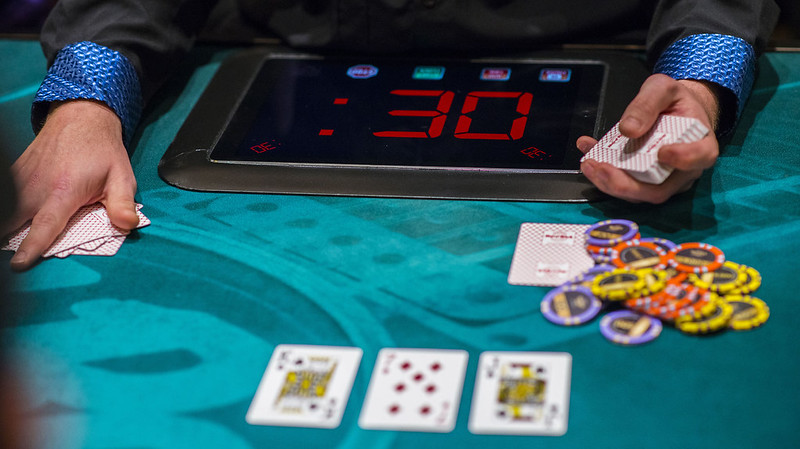
Alopecia, also known as “hair loss,” affects both men and women at some point in their lives. While it is natural for our hair to thin as we age, sudden or patchy hair loss can be indicative of an underlying condition or a reaction to medical treatment. Dr. Anika Goel, a renowned dermatologist for hair loss treatment in South Delhi, explains that stress is one of the major reasons for hair loss. Let’s explore the types of stress-induced hair loss and treatment options in greater detail.
Types of Stress-induced Hair Loss
Stress is not the cause of all hair loss. There are three types of hair loss that are linked to high stress levels:
- Telogen Effluvium
Telogen effluvium (TE) occurs when the number of hair follicles responsible for hair growth changes. If this change occurs during the telogen (or resting) phase of hair growth, it can cause shedding. This thinning may not occur evenly across the head. It is frequently seen in patches, particularly near the center of the scalp. People with TE usually do not lose all of their scalp hair. In extreme cases, you may notice thinning hair on other parts of your body. This includes the brows and the genital area. It can happen to men and women of all ages. Hair loss due to TE is completely reversible. TE does not cause permanent damage to hair follicles. The cause of your TE determines whether your hair grows back in a few months or longer.
- Alopecia Areata
Alopecia areata (AA) is an autoimmune disorder. It occurs when your immune system attacks the hair follicles. This can be caused by stress and can lead to hair loss. Hair loss may occur in round patches on the scalp or all over the scalp. Alopecia universalis, a more severe form of alopecia areata, causes hair loss all over the body. Hair may regrow and fall out repeatedly over time. Alopecia areata can affect men and women of all ages.
- Trichotillomania
Trichotillomania is also referred to as hair pulling disorder. It is the urge to remove hair from the scalp or other parts of the body. It is considered an impulse control disorder. One may notice that they pull their hair without thinking, such as when they are bored or distracted. Hair pulling may also be more intentional, with the goal of relieving stress or negative emotions. Hair pulling from the scalp, brows, and eyelashes is commonly observed. This may lead to increased stress, perpetuating the disorder’s cycle. Trichotillomania typically begins in adolescence and can last for a lifetime. Although it is unclear what causes trichotillomania, research suggests that it could be genetic.
Is Hair Loss Caused by Stress a Permanent Condition?
If stress is the reason for the hair loss, it might grow back eventually. Everyone will experience different rates of regrowth. Human hair growth occurs in four distinct stages. The average human scalp contains approximately 100,000 hair follicles. Each of the hair follicles is currently in a different phase of this cycle. These phases are:
- Anagen phase: This is the growing phase of hair. It lasts two to seven years
- Catagen phase: This is a two-week phase in which the hair follicle begins to shrink.
- Telogen phase: This is a three-month resting period.
- Exogen phase: This is the phase in which the follicle sheds hair and begins new growth.
In the event that stress is the cause of the hair loss, controlling the stress may be essential to regaining a healthy rate of hair growth.
Top 3 Hair-Regrowth Treatments
- Growth Factor Therapy
Hair booster therapy is a non-surgical procedure to enrich hair growth factors. To do so, the doctor collects a small amount of blood from the patient’s veins. The doctor then uses the double centrifugation method to prepare growth factors in the lab. Until growth factors are ready, the doctor applies a numbing cream to the patient’s scalp. Following that, the doctor injects the prepared growth factors into the patient’s dermal layer. This entire treatment is a 40 minute long procedure. And an ideal gap of three to four weeks between two consecutive sessions is recommended.
- Mesotherapy
Mesotherapy is a non-surgical procedure for hair loss treatment. In this procedure, bio-stimulation injections are used to activate hair cells naturally. Mesotherapy boosts the regeneration of follicles. It is a safe and highly effective procedure.
- Laser Light Therapy
This therapy uses a concentrated beam of light to stimulate the hair follicles and promote hair growth. This is a very comfortable and non-invasive method for increasing hair growth.
Hence, we all now understand that stress can lead to serious hair loss issues. Therefore, one should always try to stay calm and practice peace in every situation. If one wants professional advice on caring for their hair and is looking for the best dermatologist in South Delhi, one can consult with Dr. Anika Goel at Soul Derma Clinic.
To learn more about hair loss treatments, visit Soul Derma Clinic today.



